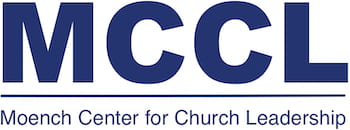What would you say is the best gift a Transitional Pastor can give a congregation?
Most traditional interim training programs land heavily on the idea that the primary task of a church in transition is dealing with grief. Thus, much of the work of a traditional intentional interim pastor focuses on unearthing, exploring and analyzing the pain and unresolved conflict that exists in the congregation. While recovery from grief can be a valuable process in some congregations, in many congregations it results in unnecessary conflict, busy work and opportunity lost.
This is the conclusion of Russ Crabtree’s book Transition Apparitions: Why Much of What We Know About Pastoral Transitions Is Wrong. Crabtree makes a compelling case that rather than grief recovery being the primary challenge a church faces, most congregations in transition are hungering for an appreciative approach that engages a wide number of people, clarifies purpose and prompts action in a coherent direction. Providing guidance on these tasks is the very best gift a transitional pastor can offer a church in the midst of a crisis brought on by a transition.
The Covid-19 Pandemic has the potential to create a tsunami of clergy retirements and departures. I expect that the challenges associated with recovery from the blows the virus has inflicted upon local churches will be the stimulus that causes a substantial number of late-career ministers to step away from their post. As more than one pastor has said to me over the last few weeks: “I’m just not equipped or motivated to lead us into this new era of church. It’s time for the next generation to take over”.
As a result, many more churches than normal will soon be in a season of obvious and overt transition. They will be seeking transitional leadership and will be wrestling with the issues associated with the changing of their pastoral guard. What will be needed will be transitional leaders who understand Family Systems, who have some diagnostic tools for discerning local church needs, and who are committed to an appreciative, purpose-focused approach to the future.
Actually, I suspect that ALL churches will find themselves in a decade of less obvious and more covert transition for the duration of the 2020s. Things have changed, and there will be no going back to church life as it was in the 2010 decade. Instead, every minister will become more and more aware that he or she is, in reality, a transitional minister. Managing a season of major transition will become the norm for all ministers. The same skill set we teach transitional pastors in our STEP training will be required of all pastors and ministerial staff members.
The temptation will be to fall back into a grief model that laments the past and becomes stuck in unhelpful analysis of “what went wrong”. Instead, we will need the ability to engage our congregations in a collective effort to, as Bob Dale taught us, “clarify purpose long before we fret about programs, people or policy”.
Forty years ago William Bridges introduced us to the idea that between every ending and eventual beginning is a season of transition he described as “the neutral zone”. (Link to the book Transitions by William Bridges) This is a place that is created when something that has existed ends, but the new thing that is coming is not yet clear. This liminal time of uncertainty between an ending and a beginning is a time filled with anxiety and stress, grief and lament. It is also a time of great potential, for the illusion of perpetuity has been destroyed, and we are fully sensitized to the inevitability of the coming change. We are open to change and new things in a way not known previously.
If we choose to simply grieve over what was, we will lose the opportunity to imagine what could be. This is where many churches are going to find themselves in the coming months and years. As unsettling as this season of transition is, it will do us well to remember that transitional seasons have the potential to open our eyes to possibilities that have previously been hidden from us. Too much focus on what we have lost will blind us to what we might be gaining.
Finding healthy leadership to navigate this season of transition will be paramount. Done well, a season of transition can lead a person or a congregation to a refreshed vision of who we are, why we are here, and what the future can be. It can provide permission to stop doing some things that are no longer effective, and to embrace possibilities long thought to be beyond us.
It may be that this season of pandemic-induced transition will turn out to be the onset of a renewed sense of purpose for churches willing to grapple with the complexities of the day. That will only happen if we recognize the value of the uncertainty of the day. To be “in it, but not of it” when it comes to anxiety and stress is no easy task, but it is that place rich with possibility as we rethink nearly everything.
Bottom line: Please don’t waste your crisis! In the midst of all the anxiety and stress in your transitional neutral zone is the seedbed of a vibrant and thriving future.


Recent Comments